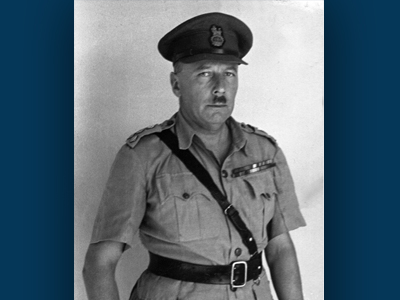Arab Leaders in Palestine Admit Failure of Non-Cooperation

June 10, 1930
During the period of the British Mandate, the Arab leadership officially boycotted all discussions about the future of Palestine as long as the British promoted the development of a Jewish national home. This included refusals to participate in the Legislative Council for shared governance or the establishment of an Arab agency equal to the already recognized Jewish Agency. In his diary entry of June 10, 1930, Frederick Kisch, the head of the Political Department of the Jewish Agency, noted that
From a variety of sources I have established that the attitude of the Arab Delegation [toward the British] is a mistake. With the exception of the Mufti [Hajj Amin al-Husayni], all the members recognize that the policy of non-cooperation with the Government, culminating in the riots of last August [1929], has been a failure. While saving their faces as much as possible, they would change the whole basis of their policy; they realize that had they accepted the Legislative Council in 1922 they might be in a position to receive something more. (F.H. Kisch, Palestine Diary. London: Victor Gollancz, 1938, p. 304.)
From the outset of the British Mandate in the early 1920s, the Palestinian Arab elite boycotted virtually all British and United Nations overtures made to them, even those made by British and U.N. officials who were decidedly sympathetic to their aspirations. Officially, the Arab elite would not and did not support any compromise with the Jews. Had they participated in local governance, even if only in an advisory capacity, the Arabs in Palestine would have drafted laws and could have limited the establishment and size of a Jewish state before 1939. Each time that the Arabs refused to participate, the Zionists had greater influence in creating laws and shaping public opinion in London, in Washington, with the League of Nations and at the United Nations.